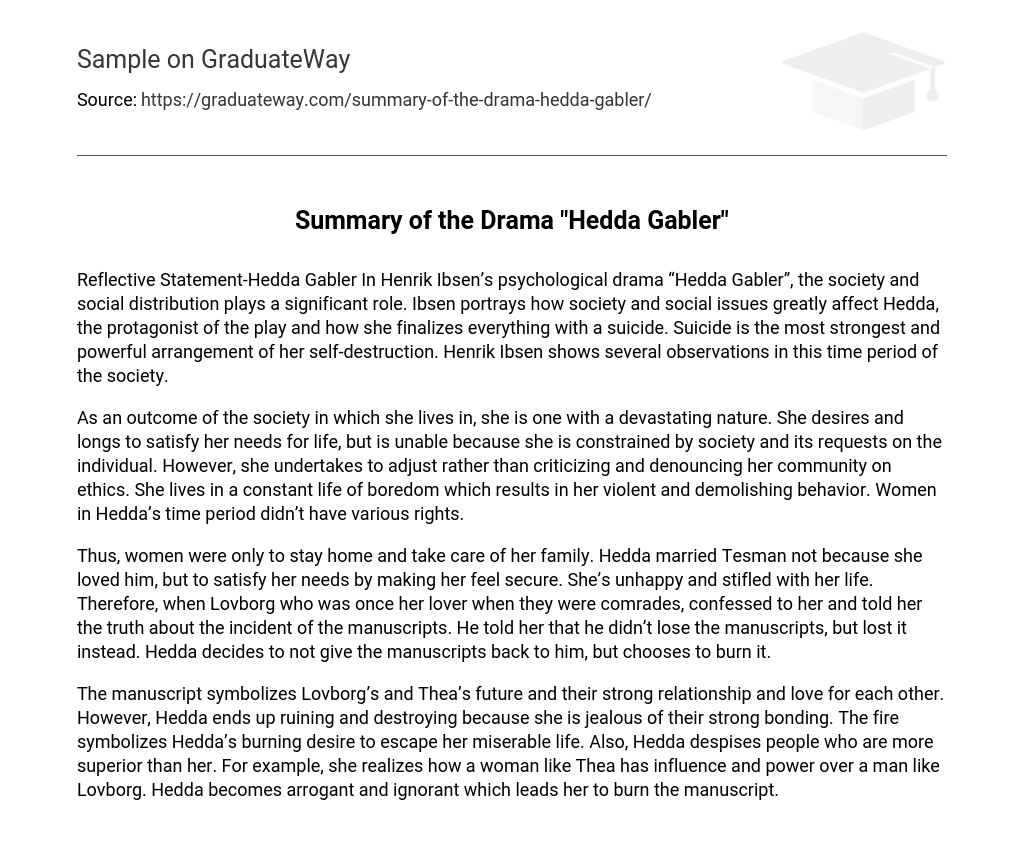Reflective Statement-Hedda Gabler In Henrik Ibsen’s psychological drama “Hedda Gabler”, the society and social distribution plays a significant role. Ibsen portrays how society and social issues greatly affect Hedda, the protagonist of the play and how she finalizes everything with a suicide. Suicide is the most strongest and powerful arrangement of her self-destruction. Henrik Ibsen shows several observations in this time period of the society.
As an outcome of the society in which she lives in, she is one with a devastating nature. She desires and longs to satisfy her needs for life, but is unable because she is constrained by society and its requests on the individual. However, she undertakes to adjust rather than criticizing and denouncing her community on ethics. She lives in a constant life of boredom which results in her violent and demolishing behavior. Women in Hedda’s time period didn’t have various rights.
Thus, women were only to stay home and take care of her family. Hedda married Tesman not because she loved him, but to satisfy her needs by making her feel secure. She’s unhappy and stifled with her life. Therefore, when Lovborg who was once her lover when they were comrades, confessed to her and told her the truth about the incident of the manuscripts. He told her that he didn’t lose the manuscripts, but lost it instead. Hedda decides to not give the manuscripts back to him, but chooses to burn it.
The manuscript symbolizes Lovborg’s and Thea’s future and their strong relationship and love for each other. However, Hedda ends up ruining and destroying because she is jealous of their strong bonding. The fire symbolizes Hedda’s burning desire to escape her miserable life. Also, Hedda despises people who are more superior than her. For example, she realizes how a woman like Thea has influence and power over a man like Lovborg. Hedda becomes arrogant and ignorant which leads her to burn the manuscript.





